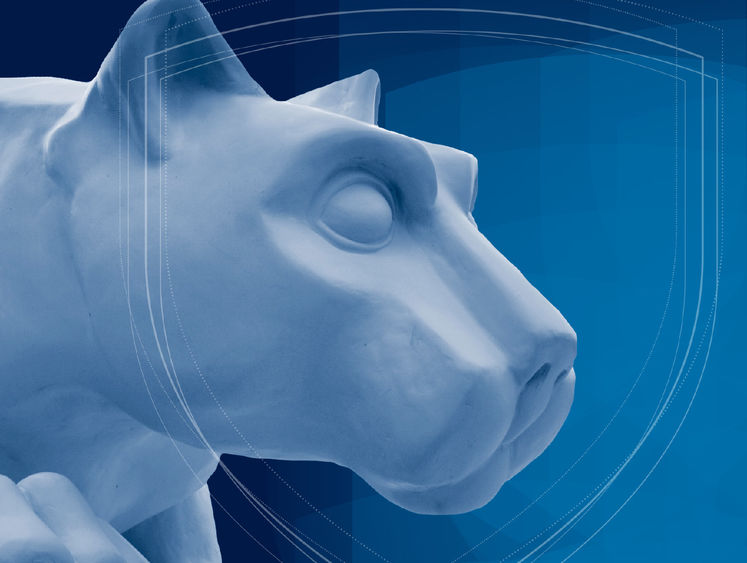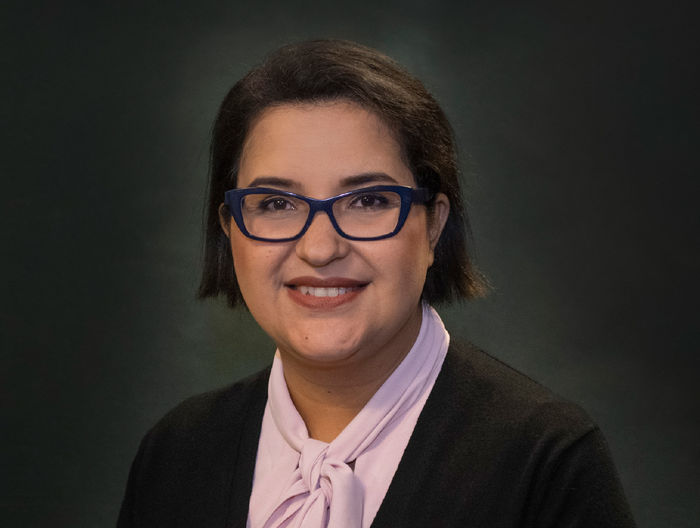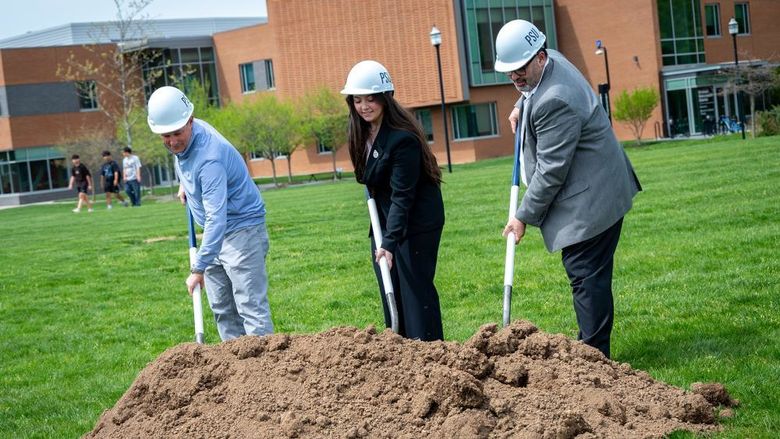
MIDDLETOWN, Pa. — A pair of Penn State Harrisburg faculty have been awarded funding to establish a research lab focused on using artificial intelligence (AI) and machine learning (ML) to improve health care access and outcomes.
Md Faisal Kabir, assistant professor of computer science, and Sara Imanpour, assistant professor of health administration, were awarded $100,000 through the AIM-AHEAD Program for Artificial Intelligence Readiness (PAIR) program, funded by the National Institutes of Health (NIH).
The PAIR program aims to enhance AI readiness among institutions across the nation, providing training to effectively leverage resources to initiate AI projects, advance health research through improved grant writing skills and foster collaboration by establishing institutional connections with AI/ML health research labs.
Receiving this grant is a meaningful step toward realizing our long-term vision of using AI not just to automate processes, but to make health care more equitable, accessible and human-centered. We’re excited to build a hub of innovation that serves our students and our broader community.—Md Faisal Kabir , assistant professor of computer science at Penn State Harrisburg
The current PAIR award will fund the first phase of the researchers’ planned program, which focuses on foundational training in AI/ML and grant writing, establishment of a team structure and early-stage research concept development.
The project will integrate Kabir’s expertise in AI/ML development with Imanpour’s skills in measuring health outcomes and access to care. Kabir said that they will also collaborate with those in the medical and health care fields to build human-centered health care AI systems.
Together, Kabir and Imanpour aim to develop data-driven tools to analyze clinical and administrative health data, improve predictive modeling and support equitable health interventions. They will also mentor an interdisciplinary group of undergraduate and graduate students, fostering hands-on experience in health-focused AI research.
“This lab will leverage clinical, biomedical, medical imaging and health care data to drive innovation in health care research, with an emphasis on interpretable, human-centered models,” said Kabir, principal investigator on the grant. “Therefore, it will not only strengthen and expand the research capacity at our institution but also support the development of the AI/ML workforce by engaging talented students in health outcomes research.”
Ultimately, the project aims to harness the power of AI and large-scale data to improve health care delivery and accessibility, Kabir said. By integrating advanced ML techniques with diverse multimodal datasets, the team seeks to support a range of clinical applications such as disease classification, health care decision support and diagnostic insights. The team will also emphasis developing human-centered, explainable AI systems to promote transparency and usability for both health care professionals and broader patient communities.
The faculty members also seek to introduce STEM students and community partners to the AI/ML field and foster a community of multidisciplinary researchers focused on health.
Imanpour said that underserved populations in the United States face serious barriers to accessing health care, which contributes to poorer health outcomes for all Americans.
“By leveraging AI and emerging technologies, we have the potential to better understand these disparities and create solutions that improve access to care and overall health outcomes — particularly for those who are most often overlooked,” she said. “Interdisciplinary collaboration is essential for tackling complex health issues. … Together, we can approach challenges from multiple perspectives and develop innovative, practical solutions that aim to improve health care for all.”
Previous grants have helped lay a foundation for the new project.
Kabir and Imanpour previously received a Penn State Harrisburg grant to research the application of ML algorithms in predicting outcomes associated with hip fractures among older adults.
Kabir also received a planning grant in conjunction with Penn State College of Medicine faculty member Timothy Brearly for a project aimed at identifying probable neurologic disease using interpretable machine learning technique. Additionally, Kabir worked with John Dougherty, assistant professor of obstetrics and gynecology, Penn State College of Medicine, on a Research Experience for Undergraduates project examining the effectiveness of AI algorithms on common insect bite detection across skin types.
Kabir said support and encouragement from individuals in the School of Science, Engineering, and Technology as well as the Office of Research and Outreach at Penn State Harrisburg helped the project come to fruition. He also expressed gratitude to students for their contributions to research projects, noting they can play an important role in the future of the work.
“Receiving this grant is a meaningful step toward realizing our long-term vision of using AI not just to automate processes, but to make health care more equitable, accessible and human-centered,” Kabir said. “We’re excited to build a hub of innovation that serves our students and our broader community.”
Imanpour added that the funding is a great achievement for both the faculty members and the college.
“It highlights our strength in interdisciplinary collaboration and our commitment to conducting cutting-edge, impactful research,” she said. “The funding reflects the value and potential of the work we’re doing across diverse fields at Penn State.”






